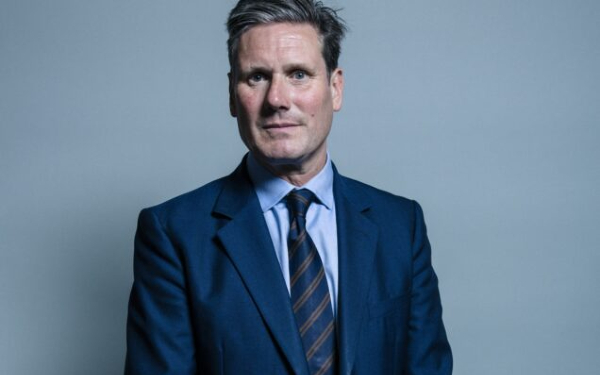
How confident are you that the new government will improve the lives of people supported by social workers?
- Neither confident nor unconfident (28%, 330 Votes)
- Quite confident (23%, 275 Votes)
- Very unconfident (23%, 273 Votes)
- Quite unconfident (18%, 212 Votes)
- Very confident (8%, 98 Votes)
Total Voters: 1,188
Labour has returned to power with an overwhelming victory in the 2024 general election.
The party has won 412 seats, giving it a majority in the House of Commons of 174.
Keir Starmer has become Labour’s first prime minister since Gordon Brown left office in 2010 and is now appointing his cabinet. Wes Streeting has become health and social care secretary, with responsibility for adult social care, and Bridget Phillipson education secretary, with oversight of children’s services, reprising the equivalent roles to the ones they took in opposition.
Stephen Kinnock has been made minister for care, with responsibility for adults’ services in the Department of Health and Social Care (DHSC), while the government is yet to confirm who will oversee children’s social care in the Department for Education. It could be former social worker Janet Daby.
The party has been elected on a manifesto that did not reference to social work and made relatively limited commitments on social care, none of which was funded.
It has also pledged not to raise income tax rates, national insurance or VAT and to stick to tight fiscal rules, including being on course to reduce public debt as a share of national income over the medium term. As a result, it has very limited scope to raise public spending.
Call to prioritise social work
However, in the wake of Labour’s long-expected triumph, the British Association of Social Workers (BASW) and Social Workers Union (SWU) called for early discussions with the new government so social workers and those they support are “at the forefront of [its] plans from day one”.

BASW chief executive Ruth Allen (credit: BASW)
“We acknowledge that the new government faces significant challenges and will have desperately difficult decisions to make,” said BASW chief executive Ruth Allen.
“However, the problems our profession and society face run deep, and requires bold and immediate actions to address. It really is time to get it right.
“From better resourcing of social work and funding of social care, to measures that alleviate poverty, reform mental health provision, protect human rights, and much more. Ministers must hit the ground running, and BASW will be working hard to influence and hold them to account.”

John McGowan, Social Workers Union (photo: Simon Hadley)
For the SWU, general secretary John McGowan said: “Social work has been at the sharp end of poor political choices that have plunged our profession into a recruitment and retention crisis and led to a decline in working conditions, while simultaneously increasing demand on services as communities become worse off.
“We hear from members everyday about the toll this is taking, and the buck stops at those in power with the responsibility to fix it. This is the strong case we’ll be making to the new government over the days, weeks and months ahead.”
Priorities for adult social care
In its first message to the new government, the Association of Directors of Adult Social Services set out three priorities for adult social care.
“Three key issues we believe the government must prioritise are the need to improve the pay, terms and conditions of the social care workforce; provide improved support to unpaid carers; and to provide care closer to home so that those drawing on care can live the lives they want in their own homes and communities,” said ADASS chief executive Anna Hemmings.
For the Voluntary Organisations Disability Group (VODG), chief executive Rhidian Hughes said: “The government faces significant challenges ahead, including putting social care on a surer footing, addressing the cost-of-living crisis, which is disproportionately impacting disabled people, and addressing the national scandal of autistic people and people with a learning disability being detained in long-stay hospitals.
“Only by prioritising the provision of high-quality support for disabled people of all ages, will we have a fairer society where everyone is able to thrive.”
‘Urgent’ need to invest in and reform adult social care
Meanwhile, independent care provider representative body Care England said the new administration needed to “invest in and reform [adult social care] as an urgent priority”.
“There are practical measures the new government must implement within its first 100 days to secure a sustainable future for our sector,” said its chief executive, Martin Green.
The Homecare Association, which represents domiciliary care providers, said there was a need for a “care revolution”.
“We’re not just talking about tweaking the system,” said its chief executive Jane Towson. “We need a complete transformation. Yes, we’ll harness AI and robots, but let’s not forget the irreplaceable human touch. We need smart tech and even smarter policies.”
“Labour now has the chance to rewrite the rules of care. Let’s create a system that’s as innovative as it is compassionate, as efficient as it is empathetic. Supporting people at home must be at the heart of government policy”.
‘Need for system fit for the 21st century’
For the Social Care Institute for Excellence, chief executive Kathryn Smith said: “More people are requesting support, but fewer are getting the help they need. With demand increasing, local authorities do not have the money to meet it and staff numbers are not keeping pace.”
She added: “A social care system fit for the 21st century is in the national interest and the formidable challenges facing the social care sector cannot be a justification for inaction.
“The cornerstone of future policy change ought to be co-producing solutions with people with lived experience, their families and carers, as well as care providers. Only an inclusive, collaborative approach will improve the efficacy and sustainability of any policy change.”
‘£6bn funding gap’
The Local Government Association (LGA) welcomed the new government with a reference to the £6.2bn gap it has calculated councils face over the next two years between the resources they have and what they need to maintain services at existing levels.
Much of this is driven by adults’ and children’s social care pressures, according to the LGA.
“It is important we find a sustainable and long term financial solution, as well as the powers and levers required so we can deliver on the priorities of the new government,” said new LGA chair Louise Gittins.
Tackling children’s social care pressures is ‘urgent challenge’
The financial pressures facing councils, including in relation to social care, were also referenced by the Association of Directors of Children’s Services (ADCS) in its response to the election result.
“For too long children’s needs, their rights and outcomes have not been prioritised and for too long councils have been severely underfunded in the face of rising levels of need and costs,” said ADCS president Andy Smith.
“A growing number of councils are effectively bankrupt, or dangerously close to this and many vital and valued services, including services that help children and families before they reach crisis point, are at risk.”
Smith added: “The new government has many urgent challenges to address. This must include the crisis in local government funding, growing pressures in children’s social care and the SEND system and huge challenges facing children’s mental health. “







 Bournemouth, Christchurch and Poole
Bournemouth, Christchurch and Poole  Hampshire County Council
Hampshire County Council  Oxfordshire County Council
Oxfordshire County Council  South Gloucestershire Council
South Gloucestershire Council  Wokingham Borough Council
Wokingham Borough Council  Webinar: building a practice framework with the influence of practitioner voice
Webinar: building a practice framework with the influence of practitioner voice  ‘They don’t have to retell their story’: building long-lasting relationships with children and young people
‘They don’t have to retell their story’: building long-lasting relationships with children and young people  Podcast: returning to social work after becoming a first-time parent
Podcast: returning to social work after becoming a first-time parent  How managers are inspiring social workers to progress in their careers
How managers are inspiring social workers to progress in their careers  Workforce Insights – showcasing a selection of the sector’s top recruiters
Workforce Insights – showcasing a selection of the sector’s top recruiters 

 Facebook
Facebook X
X LinkedIn
LinkedIn Instagram
Instagram
Alas, community care is on a different planet. Thinking that social care, or the area I have worked as qualified for nearly 30 years. Children social work. Extra funds are going to become available for children services. Dream on.. sadly Community Care is part of the media that media, that has fantasy world. Get real.. this is a publication that’s just makes money? Out of what? Not interested In the reality of people’s life? Sorry to sound negative.. thats why I am going. Sorry. X
I remember that after the Labour victory in 1997, we had high hopes for a radical improvement in plans and funding for Social Work. Our new MP was a social work manager prior to winning the seat, and must surely have some influence.
Like so much else from the Blair government, this was a disappointment.
Again, like Tony, he did very well for himself out of it.
The problem with social care is that you don’t know that you need it until you need it, and everyone hopes they won’t ever need it. Then when they do need it, they expect more than can be offered after not voting to invest in it.
I believe in personalisation and strengths and asset based practice. But now assessors are told to
– listen to what the person wants,
– help them to help themselves,
– tell them what they need,
– be proportionate with what you give them
– then help them to develop their own plan as they are the experts
Every day I see the conflict in all this playing out on the ground. Workers still operate in a task based way. we need a system that is more prescriptive in process in order to take control of these diminished budgets. This need = this solution, or you can have the budget and organise it yourself. Just roll back 20 years and it can be done.
If you don’t save up, you can’t go on holiday to the Maldives with a Wales camping budget.
Investment from government is needed, but we need policy change to be able to work within budgets too.
Adult social care issues run so much deeper: Not only is there no requirement for privately employed PAs (funded through direct payments) to be DBS cleared but the requirement for public sector front facing staff to be able to communicate adequately in English doesn’t apply to the private sector so care agencies, which pay very low wages are exempt from meaningful regulation & oversight.Add to this the high workloads & burnout & we can see the sorry state this new government (which is seemingly unaware of the reality of adult social care) faces.
Very discriminatory remarks about private care agencies. Care staff working in hospitals and local authorities are also same, ask yourself a question. Before working at NHS and Councils where did they work?
At least 70% started at private care providers.